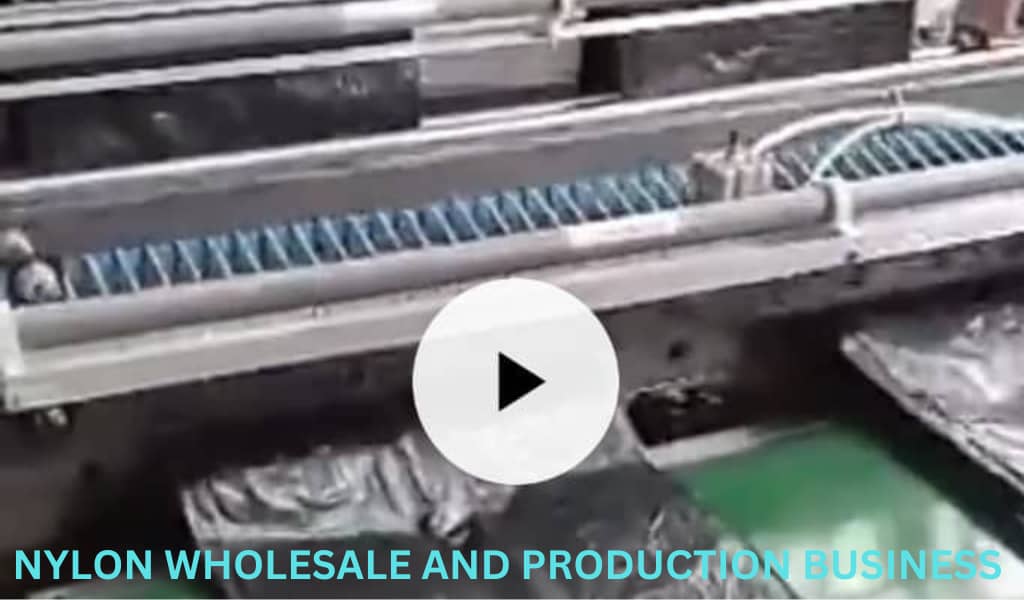Start a Nylon Bag Business in Nigeria: Costs, Equipment & Profits
Watch the Video,
see the full guide on starting a nylon bag wholesale and production business. Click below to watch on Facebook:
Starting a Nylon Bag Wholesale & Production Business in Nigeria: Opportunities, Costs & Profits
Practical guide for entrepreneurs: market opportunity, startup requirements, cost breakdown, supplier leads and sales strategies.
Introduction
Nigeria’s retail and packaging landscape is evolving rapidly. With increasing demand for reusable shopping bags, corporate-branded totes and sustainable alternatives to single-use plastics, nylon bag wholesale and light production has become a practical and profitable manufacturing opportunity for small and medium entrepreneurs. This article explains the market opportunity, what you need to start, a simple profit analysis, supplier leads and proven sales approaches to help you launch quickly and scale responsibly.
Why Nylon Bag Production Is a Smart Venture
- Recurring demand: Retailers, supermarkets, event organisers and schools place regular bulk orders.
- Regulatory tailwind: State and local actions against thin single-use plastics are shifting buyers toward reusable bags.
- Low-to-moderate startup cost: Equipment and materials are widely available in Nigerian markets and online marketplaces.
- Value-add & scalability: Custom printing, reinforced designs, zippers and laminated options allow premium pricing and new market segments.
Basic Setup & Equipment
To set up a small production unit you will typically need:
- Industrial straight-stitch sewing machines (2–4 units) — price: ₦70,000–₦120,000 per unit (Jiji, Jumia, Lagos/Kano dealers).
- Overlock / serger machine (1) — price: ₦60,000–₦90,000 per unit.
- Heat press — price: ₦50,000–₦80,000 depending on platen size.
- Cutting table & tools — price: ₦15,000–₦30,000.
- Optional: Ultrasonic welder or heat sealer — price: ₦350,000–₦600,000 (imported, for laminated/airtight seams).
Staffing: 1–2 machine operators, 1 cutter, 1 packer/admin (start smaller and scale as orders grow).
Space: A small workshop (20–60 m²) with reliable power and a simple storage area for fabric rolls and finished stock.
Investment & Unit Economics (Worked Example)
Example wholesale unit economics (illustrative):
- Selling price (wholesale average): ₦500 per bag
- Material cost: ₦150 per bag
- Labour cost: ₦50 per bag
- Variable overhead (packaging, utilities): ₦30 per bag
Total cost per bag: ₦230.
Profit per bag: ₦270 (₦500 − ₦230).
At 1,000 bags per month this model yields around ₦270,000 monthly profit. Scaling to 3,000 bags per month can generate significantly higher monthly profit, and small factories commonly reach breakeven within a few months depending on startup capital and sales traction.
Supplier Leads & Where to Source Materials
Common supplier channels in Nigeria:
- Industrial machines: Online marketplaces (Jiji, Jumia) and local dealers in Lagos/Kano for sewing and overlock machines.
- Heat presses & printing supplies: Specialist vendors and online shops; compare platen sizes before purchase.
- Fabric & consumables: Textile markets (Kano — Kwari; Lagos textile hubs) for nylon/oxford fabric rolls, thread and zippers.
- Ultrasonic welding equipment: Imported from specialised vendors — purchase only once volumes justify it.
Tip: Always ask for fabric swatches, run a sample test production and validate warranty terms for machines before bulk payments.
Sales & Marketing Strategies
High-impact sales channels to prioritise:
- Wholesale to market traders and shops: Secure recurring contracts with agreed delivery schedules.
- Corporate branding: Offer custom printing for supermarkets, schools and FMCG companies—higher-margin work.
- Events & conferences: Provide durable branded giveaways that become walking

Comments
Post a Comment